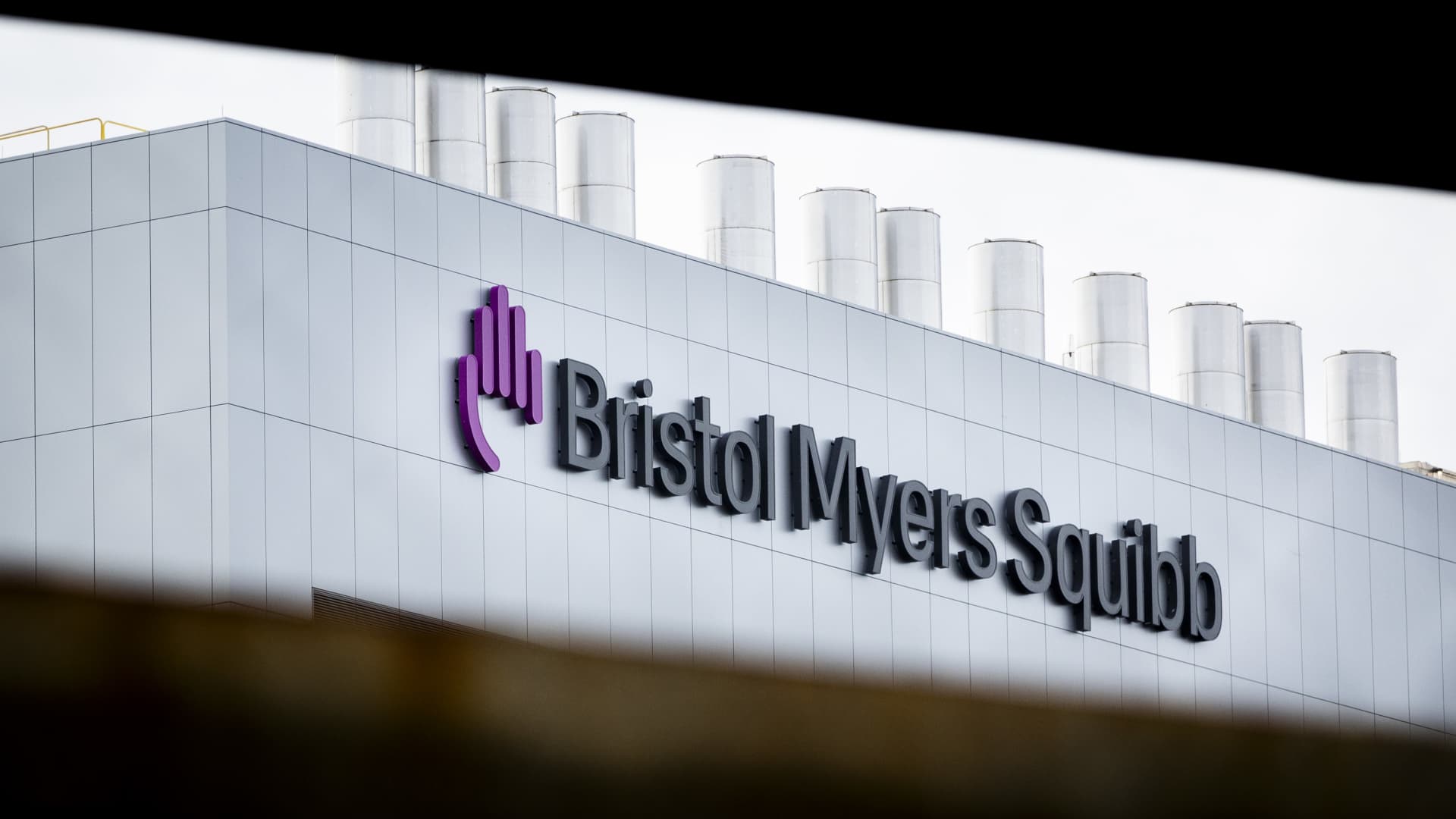Bristol Myers Squibb Surpasses Expectations Despite Tariff Headwinds
Bristol Myers Squibb (BMS) reported stronger-than-expected quarterly earnings and raised its full-year forecast, demonstrating resilience amid potential tariff challenges. The pharmaceutical giant announced the results on Thursday, attributing its performance to robust drug sales and cost management. While trade tensions loom, BMS’s strategic portfolio adjustments and pipeline advancements position it favorably in the competitive healthcare sector.
Strong Financial Performance Driven by Key Therapies
BMS posted Q2 revenue of $12.2 billion, a 6% year-over-year increase, surpassing analysts’ estimates of $11.8 billion. Adjusted earnings per share reached $2.05, beating projections by $0.12. The company credited this growth to several factors:
- Blockbuster drugs: Blood thinner Eliquis and cancer immunotherapy Opdivo generated $3.4 billion and $2.3 billion respectively, accounting for nearly half of total revenue.
- New product launches: Recent FDA approvals, including anemia drug Reblozyl, contributed $450 million in sales.
- Operational efficiency: BMS reduced R&D costs by 8% through targeted investments in high-potential therapies.
“These results reflect our disciplined approach to portfolio management,” said CEO Giovanni Caforio during the earnings call. “We’re balancing immediate commercial success with long-term innovation, particularly in cell therapy and immunology.”
While celebrating its financial performance, BMS acknowledged potential risks from proposed U.S. tariffs on Chinese pharmaceutical imports. The company sources approximately 15% of its active ingredients from China, with particular reliance on oncology and cardiovascular drug components.
Industry analysts note BMS has taken proactive measures:
- Diversified its supplier base across India and Europe
- Increased inventory levels for critical components
- Invested $200 million in domestic manufacturing upgrades
“Tariffs represent a $150-300 million annual risk for BMS,” noted Leerink Partners analyst David Risinger. “However, their mitigation strategies and pricing power should absorb most of the impact without affecting patient access.”
Revised Forecast Reflects Confidence in Pipeline
Bolstered by its strong performance, BMS raised its full-year 2024 guidance:
| Metric | Previous Guidance | Updated Guidance |
|---|---|---|
| Revenue | $46-48 billion | $47-49 billion |
| EPS | $7.35-$7.65 | $7.50-$7.80 |
The company highlighted several upcoming milestones that justify its optimism:
- Phase 3 data for psoriasis drug deucravacitinib expected Q4 2024
- FDA decision on lung cancer combination therapy by March 2025
- Six new molecular entities entering clinical trials
Industry Context: Pharmaceutical Sector Outperforms
BMS’s results arrive as the broader pharmaceutical industry shows surprising strength. The S&P 500 Pharmaceuticals Index has gained 14% year-to-date, outperforming the broader market’s 8% return. This resilience stems from:
- Continued demand for specialty medications
- Successful navigation of Inflation Reduction Act provisions
- Increased productivity in drug development
However, not all analysts share BMS’s bullish outlook. “While their current portfolio performs well, patent expirations begin hitting in 2026,” cautioned Bernstein’s Ronny Gal. “The company needs more late-stage wins to offset those losses.”
Strategic Investments in Next-Generation Therapies
BMS is allocating 22% of revenue ($2.7 billion quarterly) to R&D, with particular focus on:
- Cell therapies: Investing $500 million in CAR-T manufacturing facilities
- Gene editing: Partnering with CRISPR biotech startups
- Artificial intelligence: Using machine learning to accelerate drug discovery
The company recently opened a 300,000-square-foot research hub in Cambridge, Massachusetts, housing 800 scientists working on neurological and immunological treatments. “This isn’t just about weathering current challenges,” said CSO Rupert Vessey. “We’re building capabilities that will define medicine in 2030 and beyond.”
What Lies Ahead for Bristol Myers Squibb
Looking forward, BMS faces both opportunities and challenges:
- Opportunities: Expansion in Asian markets, potential breakthrough designations for two hematology drugs, and $1.5 billion in expected cost savings from operational improvements
- Challenges: Ongoing drug pricing debates, potential supply chain disruptions, and increasing competition in oncology
The company’s ability to surpass expectations amid tariff concerns suggests strong management execution. Investors and patients alike will watch how BMS balances immediate financial performance with long-term therapeutic innovation. For those tracking pharmaceutical trends, BMS’s upcoming R&D day on November 12 may provide crucial insights into the company’s future direction.
For deeper analysis of pharmaceutical market trends, subscribe to our healthcare industry newsletter.
See more Business Focus Insider Team

